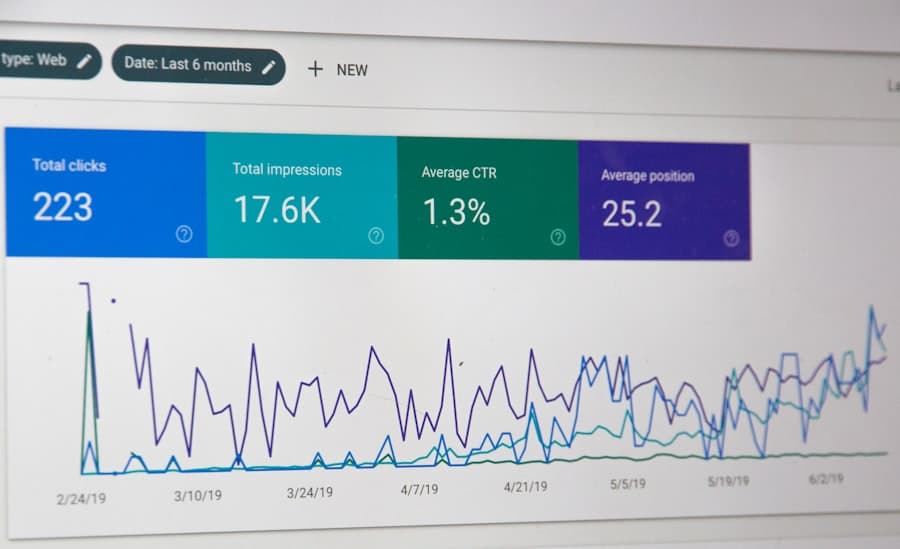Credit scoring systems have long been a cornerstone of the financial industry, serving as a primary tool for lenders to assess the creditworthiness of potential borrowers. These systems, however, are not without their flaws. Bias in credit scoring can manifest in various forms, often leading to unfair treatment of certain demographic groups.
Traditional credit scoring models typically rely on historical data, which can inadvertently perpetuate existing inequalities. For instance, if a particular demographic has historically faced barriers to credit access, the data reflecting their credit behavior may not accurately represent their true creditworthiness. This creates a cycle where marginalized groups continue to be disadvantaged in obtaining loans or favorable interest rates.
The implications of biased credit scoring extend beyond individual borrowers; they can have far-reaching effects on entire communities and economies. When certain groups are systematically denied access to credit, it stifles their ability to invest in education, start businesses, or purchase homes, ultimately hindering economic mobility and growth. As society becomes increasingly aware of these disparities, there is a growing demand for more equitable solutions in credit assessment.
This has led to the exploration of innovative technologies, particularly artificial intelligence (AI), which holds the potential to transform how creditworthiness is evaluated and to mitigate bias in the process.
Key Takeaways
- Bias in credit scoring systems can lead to unfair treatment of certain groups of people.
- AI plays a significant role in credit scoring by automating the process and reducing human bias.
- AI can help overcome human bias in credit scoring by using algorithms that are based on data rather than subjective judgment.
- Alternative data, such as utility bill payments and rental history, can be used in credit scoring to provide a more comprehensive picture of an individual’s creditworthiness.
- Explainable AI is important in credit scoring to ensure transparency and accountability in the decision-making process.
The Role of AI in Credit Scoring
Artificial intelligence has emerged as a powerful tool in various sectors, and its application in credit scoring is no exception. AI algorithms can analyze vast amounts of data at unprecedented speeds, identifying patterns and correlations that traditional models might overlook. By leveraging machine learning techniques, AI can create more nuanced profiles of borrowers, taking into account a wider array of factors beyond just credit history.
This includes behavioral data, transaction patterns, and even social media activity, which can provide a more comprehensive view of an individual’s financial behavior. Moreover, AI’s ability to continuously learn and adapt means that credit scoring models can evolve over time. As new data becomes available or as economic conditions change, AI systems can recalibrate their assessments accordingly.
This dynamic approach contrasts sharply with static traditional models that may become outdated or fail to reflect current realities. For instance, during economic downturns, AI can quickly adjust its scoring criteria to account for shifts in consumer behavior, potentially offering more accurate assessments of risk and enabling lenders to make better-informed decisions.
Overcoming Human Bias with AI

One of the most significant advantages of employing AI in credit scoring is its potential to reduce human bias. Traditional credit scoring systems often reflect the biases of their creators—whether intentional or unintentional—leading to discriminatory outcomes. For example, if a model is developed using data that reflects historical prejudices against certain racial or socioeconomic groups, it may inadvertently encode those biases into its algorithms.
AI, when designed thoughtfully, can help mitigate these issues by relying on data-driven insights rather than subjective judgments. However, it is crucial to recognize that AI is not inherently free from bias. The algorithms are only as good as the data they are trained on; if the input data contains biases, the output will likely reflect those same biases.
Therefore, it is essential for developers and stakeholders to ensure that the datasets used for training AI models are diverse and representative of the population as a whole. This involves actively seeking out data from underrepresented groups and ensuring that the algorithms are tested for fairness across different demographics. By doing so, AI can serve as a tool for promoting equity rather than perpetuating existing disparities.
Use of Alternative Data in Credit Scoring
The integration of alternative data into credit scoring represents a significant shift in how lenders assess risk. Traditional credit scores primarily rely on factors such as payment history, outstanding debt, and length of credit history. However, many individuals—particularly those from marginalized communities—may lack sufficient credit history to generate a reliable score.
Alternative data sources can fill this gap by providing additional insights into an individual’s financial behavior. Examples of alternative data include utility payment records, rental history, and even educational background. For instance, a person who consistently pays their utility bills on time may demonstrate financial responsibility despite having a limited credit history.
By incorporating such data into credit scoring models, lenders can gain a more holistic view of an applicant’s financial behavior and make more informed lending decisions. This approach not only broadens access to credit for underserved populations but also helps lenders identify low-risk borrowers who might otherwise be overlooked.
The Importance of Explainable AI in Credit Scoring
As AI becomes increasingly integrated into credit scoring systems, the need for transparency and explainability becomes paramount. Explainable AI (XAI) refers to methods and techniques that make the decision-making processes of AI systems understandable to humans. In the context of credit scoring, this means that borrowers should be able to comprehend how their scores are calculated and what factors influence those scores.
The importance of explainability cannot be overstated; it fosters trust between lenders and borrowers while ensuring accountability in the decision-making process. If individuals understand how their credit scores are derived, they are better equipped to address any discrepancies or inaccuracies that may arise. Furthermore, explainable AI can help identify potential biases within the scoring system itself.
Ethical Considerations in AI-Powered Credit Scoring

Algorithmic Discrimination and Bias
One major concern is the potential for algorithmic discrimination, where certain demographic groups may be unfairly targeted or disadvantaged by automated decision-making processes. This risk underscores the importance of rigorous testing and validation of AI models to ensure they do not perpetuate existing biases.
Regulatory Oversight and Consumer Protection
Additionally, there is a need for regulatory oversight in the use of AI for credit scoring. Policymakers must establish guidelines that promote fairness and transparency while protecting consumers from discriminatory practices. This includes ensuring that individuals have the right to appeal decisions made by automated systems and access their data used in scoring processes.
Data Privacy and Consumer Trust
Ethical considerations also extend to data privacy; as alternative data sources become more prevalent, safeguarding personal information becomes critical to maintaining consumer trust.
The Future of AI in Credit Scoring
Looking ahead, the future of AI in credit scoring appears promising yet complex.
The integration of real-time data analytics will likely enable lenders to make instantaneous decisions based on current financial behaviors rather than relying solely on historical data.
Moreover, advancements in natural language processing (NLP) could facilitate more personalized interactions between lenders and borrowers. For instance, chatbots powered by NLP could provide tailored advice on improving credit scores or navigating loan applications based on individual circumstances. However, as these technologies develop, it will be essential for stakeholders to remain vigilant about ethical considerations and ensure that advancements do not come at the expense of fairness or transparency.
The Potential Impact of AI on Reducing Bias in Credit Scoring Systems
The integration of AI into credit scoring systems holds significant potential for reducing bias and promoting equitable access to credit. By leveraging alternative data sources and employing explainable AI techniques, lenders can create more accurate assessments of borrower risk while minimizing the impact of historical biases embedded in traditional models. However, realizing this potential requires a concerted effort from developers, regulators, and financial institutions to prioritize fairness and transparency throughout the process.
As society continues to grapple with issues of inequality and access to financial resources, the role of AI in shaping the future of credit scoring will be critical. By harnessing technology responsibly and ethically, we can work towards a more inclusive financial landscape where all individuals have the opportunity to achieve their economic goals without being hindered by systemic biases.
A related article discussing the benefits of AI in customer interactions can be found at

